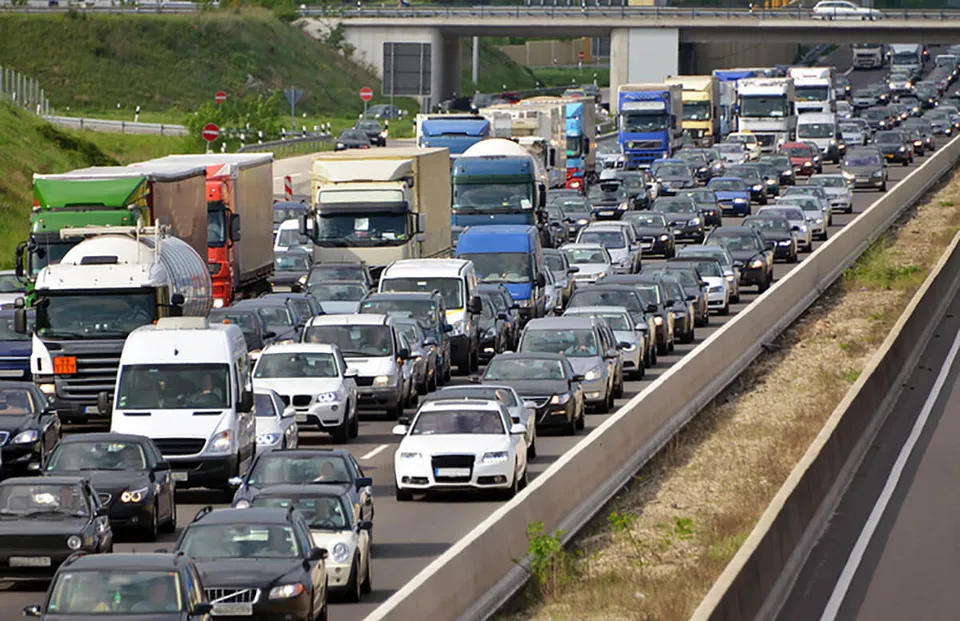Fleets will need time and financial incentives to adapt to measures outlined in the Government’s new air quality plan, industry bodies have warned.
A ban on the sale of all new “conventional” petrol and diesel cars and vans by 2040, was the headline-grabbing announcement. However, the plan also gave the green light for local authorities to charge cars and vans to enter zones where pollution is at its worst.
The Government wants councils to consider changing road layouts at air pollution pinch points and encourage the uptake of ultra-low emission vehicles (ULEVs) and retrofit vehicles. But it says if these measures are not sufficient, local plans could include restrictions on vehicles, such as charging zones or measures to prevent more polluting vehicles using particular roads at certain times.
Councils will need to set out their initial proposals by the end of March 2018, followed by their final plans by the end of December 2018.
In addition to the Ultra Low Emission Zone (ULEZ) in London, there are five other cities – Birmingham, Derby, Leeds, Nottingham and Southampton – which will have to introduce Clean Air Zones (CAZs) by 2019. There may be other locations which also decide to introduce CAZs where charges could be introduced.
Many fleets will be operating the cleanest Euro 6 vehicles which should be exempt, but some – especially van fleets with longer replacement cycles – may fall foul of the new rules.
The Freight Transport Association (FTA) says clarity is urgently needed to identify which vehicles will be affected. Elizabeth de Jong, FTA director of UK Policy, told Fleet News: “We won’t know where vans will be restricted until next year, giving only a year for businesses to plan their fleets, leaving many with potentially large bills on top of rising operating costs in a difficult trading environment.”
If vans are affected by CAZs, the FTA says there will be little more than two and a half years’ worth of compliant vehicles in the fleet and no established second-hand market. Many businesses will now be locked into lease agreements which extend beyond the 2019 deadline and will be costly to get out of, it warned.
“For those whose businesses operate inside a zone, a period of grace, giving them extra time to comply, would provide much-needed breathing space,” said de Jong. “Our worst fear is that some may be forced out of business altogether if the plans are not properly thought through.”
The Government has set aside a £255 million package to help councils implement local measures which, it says, will be funded through changes to the tax treatment for new diesel vehicles, or through reprioritisation within existing departmental budgets. Further details on changes to the tax regime will be announced later in the year in the Budget.
The Government also says it wants to help minimise the impact of such measures on local businesses and those travelling into towns and cities to work where charging zones are necessary. It will issue a further consultation in the autumn.
The measures considered in that consultation will include options to support fleets, including retrofitting, exemptions and discounts from any restrictions or permit schemes for vans.
The RAC says the Government must ensure that all other solutions for reducing emissions have been exhausted before a charging zone is introduced.
“Charging to drive on certain roads and in certain areas must be the last resort,” said RAC roads policy spokesman Nick Lyes.
However, he added: “The Government has not yet made it clear what process needs to be followed before a charging regime comes in to force.”
The British Vehicle Rental and Leasing Association (BVRLA) is also looking for consistency. It welcomed the Government’s pledge to consult on measures that will help minimise the impact on businesses, including a possible scrappage scheme.
BVRLA chief executive Gerry Keaney said: “We must ensure that zones are consistent across the UK – not only having the same emissions standard requirement, but also in terms of their signage, enforcement and penalties for non-compliance.”
He also believes that well-targeted scrappage schemes could make a significant contribution in reducing NOx emissions.
However, the Government says analysis of previous schemes has shown “poor value for the taxpayer and that they are open to fraud”.
Lyes concluded: “It must be targeted and shown to provide tangible reductions in emissions and value for money for taxpayers.”




















Login to comment
Comments
No comments have been made yet.